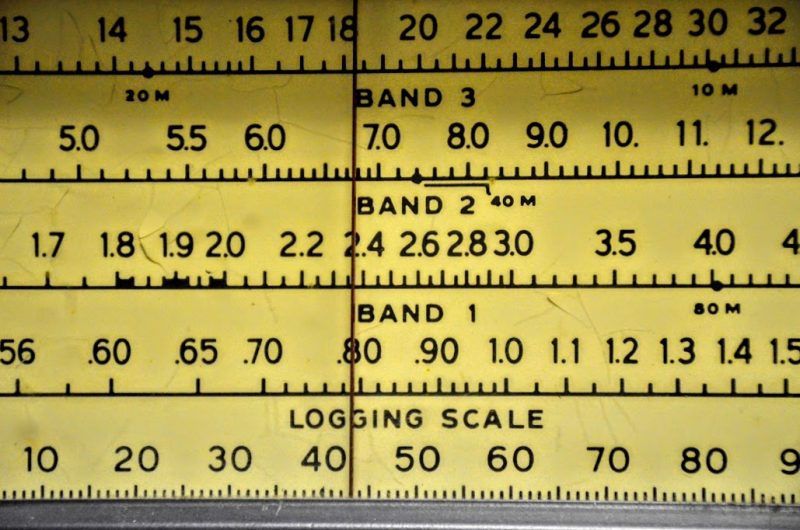Radio Waves: Stories Making Waves in the World of Radio
Welcome to the SWLing Post’s Radio Waves, a collection of links to interesting stories making waves in the world of radio. Enjoy!
Many thanks to SWLing Post contributors Dennis Dura, Mark Erdle, and Jock Elliott for the following tips:
‘It’s what listeners like’: AM radio purveyors on the Palouse hope automakers heed call to keep their medium alive (The Spokesman-Review)
The rolling, green-turning-golden hills just outside Steve Shannon’s studio window at the offices of Inland Northwest Broadcasting north of downtown Moscow aren’t just pretty to look at.
They’re also the reason the AM radio dial remains important in this expansive, rural stretch of the country.
FM broadcasting is based on line-of-sight, but the pesky thing about AM waves is that they pass through anything, Shannon explained. And they reach a monthly audience that’s still more than 82 million strong across the country, most of them in areas just like the Palouse, according to a fall 2022 survey by broadcast tracking company Nielsen.
“People are tuning in to AM because they are listening to content they can’t get anywhere else,” said Shannon, operations manager for the group that is behind six stations on both the AM and FM dial broadcasting in Moscow and Colfax.
The future of the format seemed in jeopardy just a few short weeks ago, when broadcasters convened in Washington D.C. and pushed federal lawmakers to pressure carmakers who were pondering an end to AM receivers in new cars. Electric vehicles, growing in popularity and headed for a likely continued boom, especially with Washington outlawing the sale of new gas-powered cars beginning in 2035, create interference with a signal that can make AM transmissions difficult to hear, according to automakers.
That pressure, which included the introduction of legislation that would have required manufacturers to install AM receivers in new cars, appears to have made the point. In late May, Ford’s chief executive officer announced on social media it had reversed course and would provide the service in all 2024 Ford and Lincoln models after planning to remove it from some models because of higher costs and lack of listeners. [Continue reading…]
The renaissance of AM radio: a confluence of social, regulatory and technical revitalization (Cardinal News)
AM radio, a pioneering force in the world of broadcast communications, has for several decades been an essential medium for disseminating information and entertainment. However, its appeal has been progressively diminishing due to social, regulatory and technical challenges. Nevertheless, this scenario presents an opportunity for a significant revival.
The decline of AM radio can be traced back to significant changes in content, notably the reduction in locally focused programming. Many AM station owners made strategic decisions to move away from content that directly catered to local communities, often replacing local news, events and issue discussions with syndicated programming. These changes left a void of locally relevant content, reducing listeners’ connection with stations.
The Federal Communications Commission’s abolition of the Fairness Doctrine in 1987 exacerbated the situation. This doctrine, which required broadcasters to present contrasting views on controversial issues of public importance, ensured a balanced discourse on the airwaves. Its repeal led to increased broadcasts favoring extreme political views, either heavily liberal or conservative. While this trend may have appealed to specific audience segments, it risked alienating listeners seeking balanced discourse.
Compounding these programming shifts, religious content on the AM band has considerably increased. While serving an essential audience, the sheer volume of these broadcasts reduced the variety and balance of programming, possibly leading potential listeners to turn away. [Continue reading…]
Radio Station WOR in Photographs – 1939 (AWM on YouTube)
In 1939 photographer Ralston B. Collins made a photo album of metro New York radio station WOR. This album is from the J. R. Poppele Collection at the Antique Wireless Museum.
Building a Simple Faraday Cage, by OhioGalt (SurvivalBlog.com)
This article describes the effects of EMP and CME and how to build a simple inexpensive Faraday cage.
Most readers of the SurvivalBlog are aware of the potential damage from either a Coronal Mass Ejection (CME) or an Electromagnetic Pulse (EMP) and the impact on everyday electronics. With an EMP, an electromagnetic pulse is generated at high altitudes from a nuclear explosion damaging sensitive electronics. A CME damages electronics in a similar way with the release of a large solar flare from the sun reaches carrying magnetic fluxes and plasma toward earth. These magnetic fluxes interfere with Earth’s magnetic fields and create current surges in power systems and electronics. As of this writing, there is several C and M class flare activity causing some Amateur Radio blackouts on the lower bands. To follow active solar weather visit Spaceweather.com. [Continue reading…]
Do you enjoy the SWLing Post?
Please consider supporting us via Patreon or our Coffee Fund!
Your support makes articles like this one possible. Thank you!


